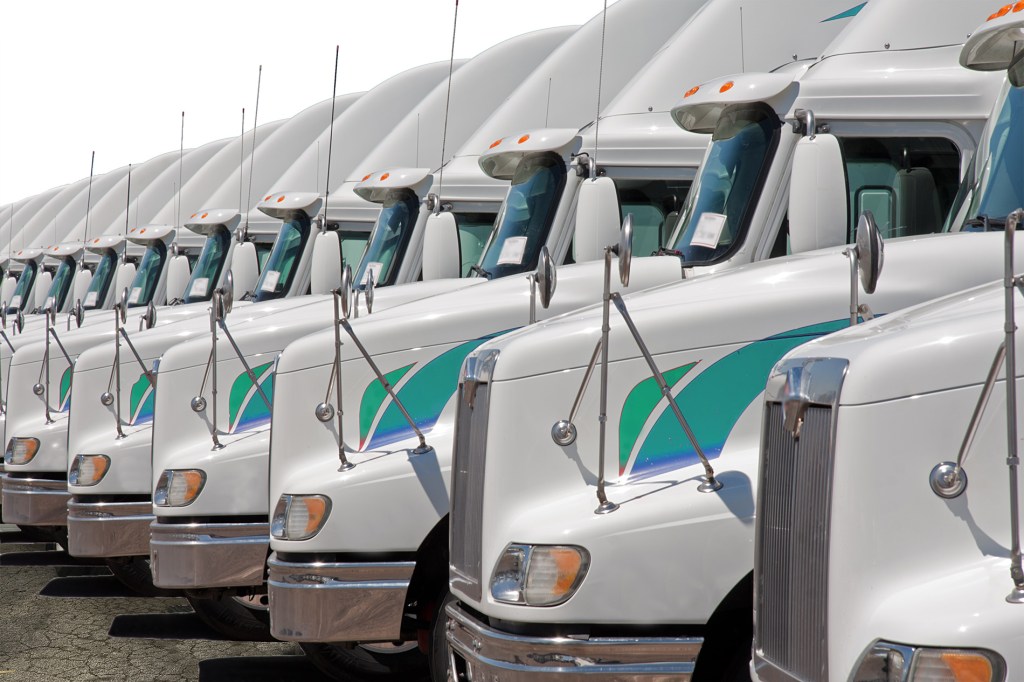4 Ways to Improve Fleet Productivity in Your Business – 2024 Guide

If you are running a business that relies on transportation, having a fleet of vehicles is essential for its success. But, it’s not enough only to have it; it needs to function correctly. To achieve its maximum functionality, you need to take good care of it and pay attention to even the smallest details. If you have a productive fleet, your company will be up and running at all times. Today, being efficient is what separates you from the competition. If you feel that your fleet isn’t working as well as possible, you have an issue, and we have a helping hand. In this article, we’re going to give you four ways to improve your business’s fleet productivity. Follow our lead and take your fleet to another level of efficiency and productivity.
1. Technology

Efficiency and technology go hand in hand. We can say they’re like best friends. With the development of the latter, the first one reached new levels. Many companies managed to reach new heights upon adequately applying tech developments to their business. When you think about it, fleet management is no different. Fleets found their way to advance thanks to Telematics. If the term is not known to you, you get when you combine analytics and tracking. The data you get this way is what good fleet managers use to improve their company further. If you visit Mobilizz.com, you can get in touch with people who specialize in reducing client’s costs, improving fleet performance, and launching new services and products, among other things. They make this possible through proper data usage. This might be precisely what your fleet needs to be better, and you should use it to your advantage.
What Telematics precisely do, is what you must be wondering? Well, they rely on GPS tracking to follow the fleet on all locations and at all times. The data gained is recorded, and based on the acquired details, they estimate the fleet’s performance. The metrics they use include the vehicle’s health, fuel efficiency, and maintenance updates, among others. These combined give you a picture of how the fleet is doing and what areas of operation can be improved.
2. Fleet Maintenance

A good performance of your fleet is closely tied to its physical condition and working ability. Sometimes, fleets lose some of these traits with time, which is normal. But it would be best if you didn’t leave it that way. With a good maintenance program, you can always have it in top condition. Most companies that are into the transportation business usually rely on massive vehicles able to tow a lot of weight. They get the job done, but this comes at a price. The bigger the truck or a van, the more it costs to buy it, maintain it and repair it in case of a malfunction. The cheapest option is to maintain it according to instructions, rather than continuously having it in the mechanic shop or replacing it with a new one. The fleets that have longevity are the ones that are maintained on a regular basis.
Today, thanks to modern technology and predictive maintenance, you can stay one step ahead of any malfunction. Telematics also have an appliance here. Through them, fleet managers can know in advance in which condition is the engine, car frame, or tires, and handle all maintenance preparations in advance. Once you know details like these in advance and have everything scheduled, your fleet’s efficiency increases as there won’t be any time wasted on determining what the malfunction is. This will keep your fleet on the road rather than in the shop.
3. Fuel Efficiency

The transportation business runs on fuel. As such, it is one of the most costly assets you have. If your company wants to earn as much as possible, the fuel expenses must be kept under control. If you manage this, you’ll earn more in return, and the fleet itself will be more efficient. There are many ways that you can make your fleet more fuel-efficient. One of the most common ones is the fuel expenses card program. If every driver in the company is designated with a separate card that would mark the fuel consumption, and when it’s bought, the expenses would be under control. Furthermore, much time and effort would be saved on paperwork. It would also keep the trust game between the management and the drivers in place, as there would be no embezzlement room.
4. Time Optimization

Besides fuel, every fleet also has another significant expense. We all have it, and it is the biggest one of them all – time. A good, productive, and efficient fleet runs on a tight schedule and always manages to honor it. Everyone’s experience with fleet management comes down to one major issue – paperwork. Vehicle inventory, registration, adding new vehicles, getting rid of the old ones, and hiring labor need to go through papers. With the right system in place to keep everything organized, saving money and time would go hand in hand. A fleet management system is what you need to make the most of all resources you have at your disposal. Considering the technological advancement we have today, computerizing every aspect of your business would be a wise move. A system that operates with data that you’ll need every day, with easy access, should be easily installed with the right tech expert. While it could be a hustle in the beginning, it would work in your favor in the long run.
Another aspect where technology can provide a helping hand is route planning. The same way the NFL receivers exploit the cornerbacks with perfectly executed routes, your company could do the same with drivers, vehicles, and deliveries. If you have already prepared routes, you can execute a game plan to perfection and save time and fuel.




